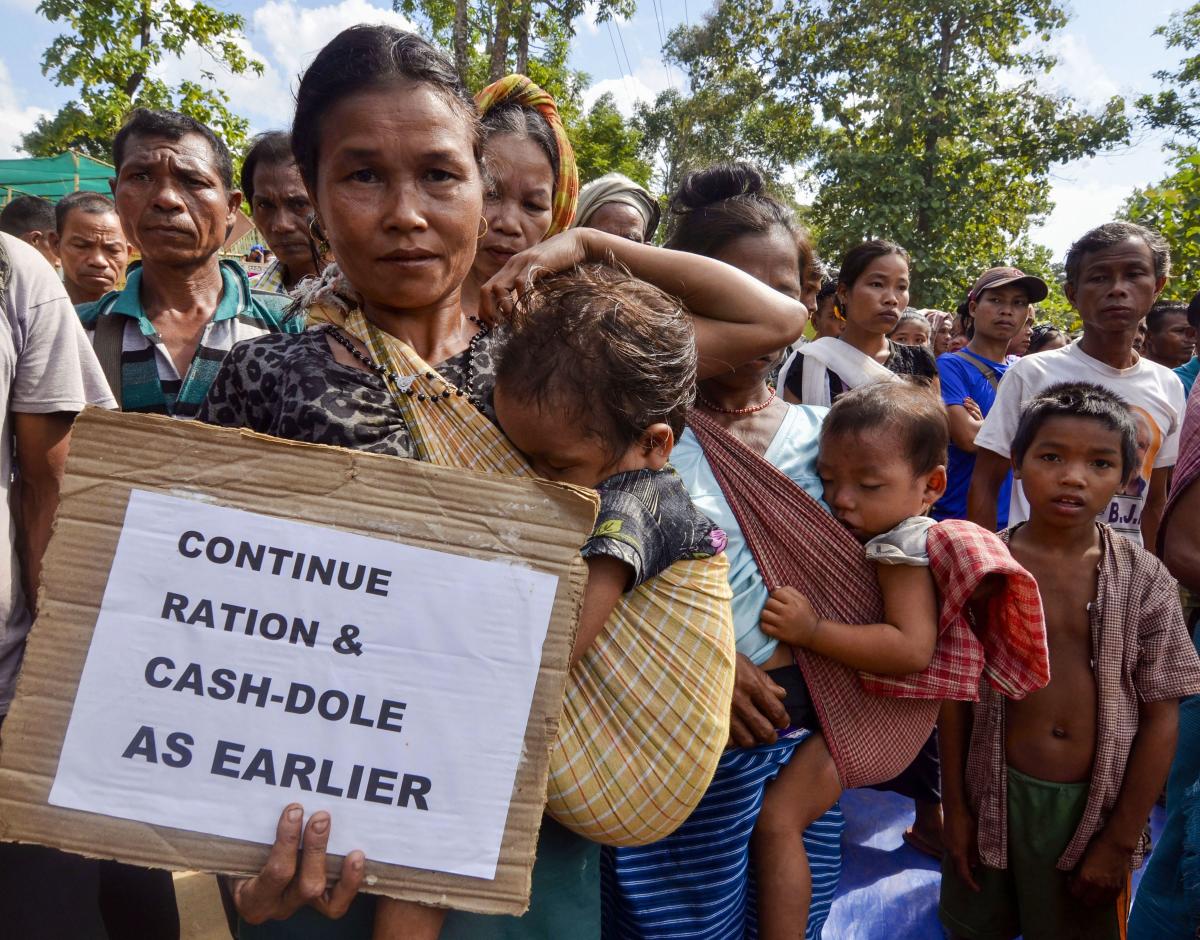
Resettlement of Brus in Tripura remains uncertain amid COVID crisis

Six months after the signing of a pact to permanently resettle the internally-displaced Bru people in Tripura, the entire process has now been bogged down by the lockdown logjam, creating new complications.
The delay has given an opportunity to the people who had opposed the deal to start fresh agitations against the resettlement process. A Bengali and a Mizo groups have already started mobilisation against the historic agreement signed on January 26 this year.
The Mizoram Bru Displaced People Forum (MBDPF) said the delay would only complicate the matter, allowing new groups to come up with newer demands. It has requested the government to completion of the resettlement process as early as possible.
“We want the government to complete the resettlement process as soon as possible. But it is very unfortunate that the COVID-19 pandemic and lockdown have delayed the process. It would take another 2-3 months to get it completed,” said Bruno Msha, general secretary of the MBDPF.
Since 1997, over 37,000 people of the ethnic Bru or the Reang community had fled three districts of Mizoram — Mamit, Kolasib, and Lunglei that are located in the south — in the wake of the ethnic violence. They sought shelter in the adjoining Tripura even without knowing they had crossed the interstate border at that time.
All 37,000 people took shelter in six relief camps in Kanchanpur and in Panisagar sub-division of Tripura’s North district, around 170 km away from Agartala. Months later they came to know from the local authority that they were migrants.
Since 2009, at least 5,000 Brus have returned to Mizoram in ninth phases of repatriation from Tripura and the others are living in the relief camps.
More than 23 years after the exodus, the Centre, on January 16, 2020, gave hope to the remaining 32,000 Bru migrants for permanent resettlement in Tripura, along with ₹600 crore package, after signing a quadripartite agreement between the Union, Tripura and Mizoram governments and Bru leaders.
Related News: Tripura govt to distribute nutrition kits to pregnant, lactating women
As per the package, the government would provide each Bru family with a 40X30 feet housing plot, ₹1.5 lakh to build a house, ₹4 lakh in fixed deposit, and ₹5,000 a month as financial aid for the next two years, besides free rations.
As many as 12 proposed lands were identified by the Tripura government for the permanent resettlement. Five lands are under Kanchanpur sub-division in the North district, three in Dhalai District and one land each in Unakoti, Khowai, West and Sepahijala districts.
A government official said, “The entire process of permanent resettlement was supposed to end by June. We are done with physical verification within the locations. The entire process is being delayed because of the COVID-19 lockdown.”
“We are now waiting for the approval of the government as physical verification has finally been completed. There are some families without Adhaar cards, bank accounts etc. We organised a camp to provide them with Adhaar cards, but couldn’t conduct it due to the lockdown. It will take a few more months for the permanent resettlement process,” he said.
The delay has led to a new problem: The resistance from two social organisations of Kanchanpur sub-division — ‘Nagaraik Suraksha Mancha’ led by the Bengali community and ‘Mizo Convention’ led by the Mizo community.
Related News: Nagaland, Mizoram still lack ‘Nari Shakti’ in corridors of power
On June 10, both the organisations together began an indefinite hunger strike with a demand to resettle Brus outside Kanchanpur Sub-division. However, after a week, the government called them for a talk to solve the problems. So, the organisations called off their protest.
Both the groups have claimed that the resettlement would have a social, economic, political and demographic impact on them and alleged that communal harmony had deteriorated in the sub-division after the arrival of Brus. Now, both the organisations are planning on how to block the resettlement of Brus.
“Though we called off the protest, following the state government’s assurances, nothing has been done yet. So we will soon decide our next course of action. We will intensify our protest in a democratic and peaceful way until and unless our demands are met”, Ranjit Nath, President of Nagarik Suraksha Mancha told The Federal.
However, Bru leaders said they had been living peacefully with all communities for over two decades and that the allegations are being levelled by “a few people just to gain political benefit”. They said the delay in resettlement was also increasing the risk of COVID-19 spread among the community.
“It’s very difficult to maintain social distancing in relief camps because we don’t have a separate house, toilet, washroom etc. The government has not taken any special initiatives in the camps,” said Msha.


